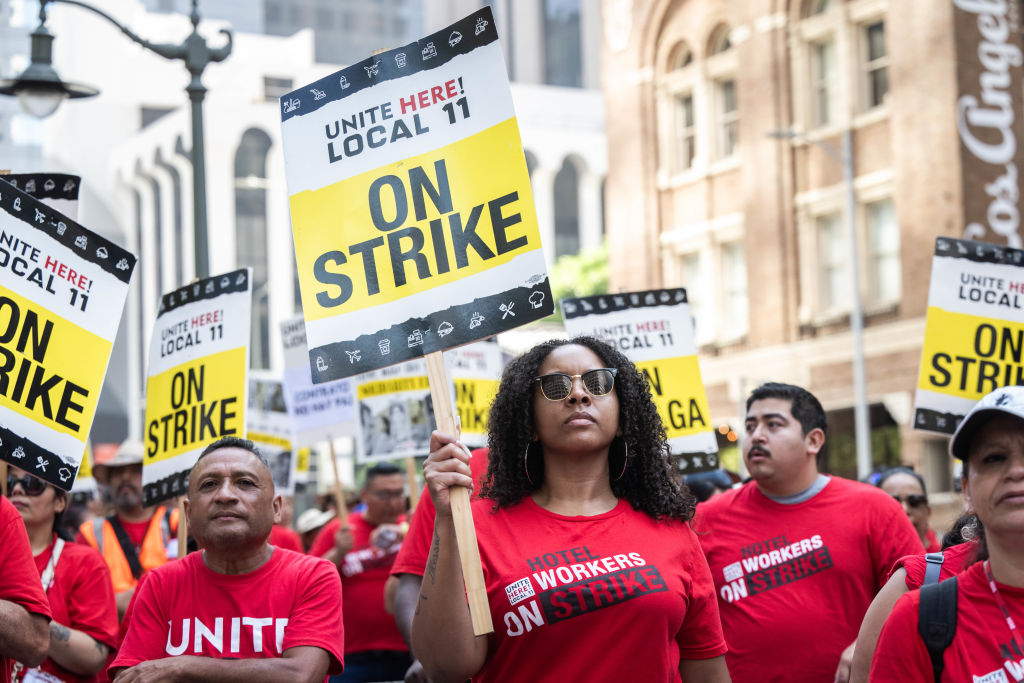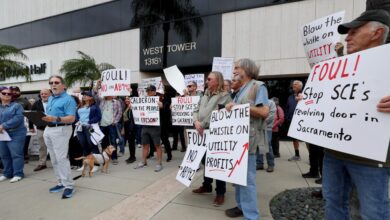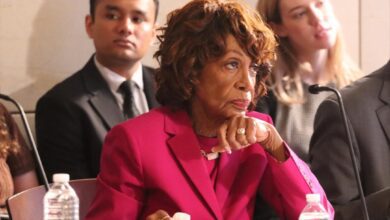The American Political Science Association’s Profile in Cowardice

Labor activists often recite an old dictum, “solidarity is a verb.” It’s meant to emphasize that solidarity is not just about supporting one’s fellow human being with thoughts and words — it requires action. That action often entails sacrifice. If solidarity didn’t have costs, we wouldn’t need to exhort others about it so often.
The current strikes in the United States have offered inspiring examples of solidarity. Many Teamsters and International Alliance of Theatrical Stage Employees (IATSE) members have honored the picket lines of striking writers and actors, often at great personal cost. These workers need the income from these jobs, and the union’s pension fund is taking a hit, but they know that it is the right thing to do. Of course, a win for the writers and actors will also help the entertainment industry’s other workers, whose contracts expire next year. But when these individuals are faced with a choice in the here and now — cross a picket line or don’t, lose a day’s income or don’t — they are deciding to do the right thing.
So, too, in the other major strike in Southern California: that of fifteen thousand hotel workers, members of UNITE HERE Local 11, who have been engaged in rolling strikes since early July. I recently wrote about a stand taken by Thomas Bradley, who had signed up for a shift at the Laguna Cliffs Marriott Resort & Spa in Orange County using Instawork, an app-based staffing company. But when he arrived at the hotel, he realized that the workers were on strike, which made him a strikebreaker.
Confronted with two options — cross the line and get a day’s pay, or respect the line and lose that pay — Bradley chose to join the picket line, come what may. He was homeless at the time, but some things are more important than oneself. As he told me, “If you see something that you know is wrong, what are you gonna do? You’re gonna try to fix it. I did what I felt was right. These are people’s jobs and I didn’t want to take somebody’s job away.”
Simple as that, or so one would hope. But a situation that has been unfolding since the day I published that article calls for reiterating the point.
The American Political Science Association (APSA) is scheduled to hold its annual four-day scholarly conference in Los Angeles on Labor Day weekend; six thousand attendees were expected. Unite Here Local 11 has said that it cannot guarantee that it won’t strike the J. W. Marriott hotel, where one-third of the conference is scheduled to take place, as it is one of the many properties rejecting the union’s proposals at the bargaining table.
The union has asked the ASPA to cancel or postpone the conference, hold it elsewhere, or run it online — just cancel hotel-room blocks reserved for the event and do not hold any meetings at a struck hotel. A host of other organizations — the Council of State Governments, the Japanese American Citizens League, the W. K. Kellogg Foundation, the television show Vanderpump Rules — have done so.
APSA says that it will not follow the union’s wishes. According to Peter Dreier in the Nation, the organization’s staff have been aware of the possibility of a strike since April, but they apparently did not take it seriously until June, when the local’s members voted almost unanimously to authorize a strike. In an emergency meeting on July 28, APSA’s elected executive council voted nineteen to four to carry on as planned.
“The union has asked us to cancel our annual meeting, and we have heard from hundreds of APSA members who support this demand,” said APSA in a statement released that day. “However, given the short time remaining before the meeting, it is not possible to relocate it wholesale. The decision about how to proceed is a difficult one, and we recognize that any decision will disappoint many members.”
The organization went on to claim that the decision was made with a particular eye to “the interests of our membership — especially underrepresented scholars, scholars from the Global South, and non-tenured scholars.” This despite the fact that the organization has moved its conference several times in recent history.
Many of those junior scholars have since declared that they will boycott the event. APSA’s decision to undermine workers in their name has incensed these scholars, and rightly so. Instead of canceling and prioritizing refunds for such members, the association, which as of 2021 had more than $50 million in assets, has now ensured that young scholars will shoulder the costs themselves, navigating the cancelations on their own.
US higher education is in the midst of an enormous wave of labor organizing among scholars: strikes, new unions. For many of APSA’s members, the current debacle surely evokes memories of some senior professors’ failure to support such activity.
If APSA leaders did not realize that moving forward with an in-person conference would lead to such an uproar among their membership as to call the organization’s legitimacy into question, perhaps they are not sufficiently in touch with their junior members. Setting up young scholars to cross a picket line to get ahead in their careers may be an accurate lesson about the academy, but are the association’s leaders sure that they want to teach it so openly?
Several of the association’s sections and caucuses have begun withdrawing from the conference, pledging to try to offer help to scholars left in the dark by the abdication of leadership by their parent organization. As political scientist (and Jacobin contributing editor) Alyssa Battistoni noted, the Yale graduate student union is affiliated with UNITE HERE, meaning that hotel workers’ dues funded her organizing as a PhD student there. She would never cross their picket line, she says. “Hotel workers have done more to support me as an academic worker than APSA ever has.” Multiple members of APSA’s executive council, as well as a former APSA president, have said that they too will respect the picket line.
But not everyone is on board. There has been some backlash to the admirable flood of scholars vowing to boycott the conference. As one scholar wrote, “it takes privilege to stand in complete solidarity with the workers.”
It does not. What it does take is sacrifice.
It is true that action comes at a higher cost for those with less job security and less money. It is incumbent upon those with more security to lead the way, assuming greater risk so those with less don’t have to. This is precisely what APSA’s leadership has failed to do. In the face of their dereliction of duty, plenty of members who can little afford it are nonetheless now taking on those costs themselves.
It is deeply unfair that doing the right thing often means taking a hit, but that is because capitalism is deeply unfair. The market largely fails to account for social good or social harm. Indeed, it often rewards harm. That the hotels’ intransigence forces both the strikers and the public to shoulder the costs of doing good is infuriating.
But you either do the right thing, or you don’t. Plenty of people, including the extremely poor, eat the cost of doing so every day, which can be enormous over the course of a lifetime. Being a good person is expensive — just ask Thomas Bradley, the homeless hotel worker.
Many of APSA’s members are now choosing to side with the workers. As they should: after all, few of even its most junior members are in as dire straits as Bradley was when he chose not to cross the Laguna Cliffs picket line, and he saw that decision as a no-brainer. It is a shame that the organization is refusing to leverage its considerable weight to help the workers win the strike, a choice made even more unforgivable given the subject of its members’ work. But solidarity takes courage. And then there is its opposite: cowardice.




